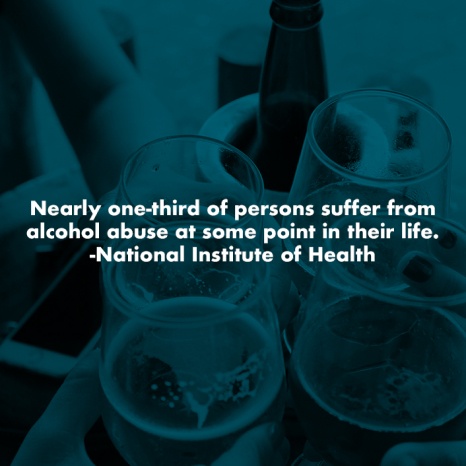Tramadol and Alcohol
Tramadol
Tramadol is considered a synthetic opiate, typically prescribed for pain relief. Opiates in general, including Tramadol, provide pain relief by changing the way our brains recognize pain signals. Similar to morphine, Tramadol binds to pain receptors in our brain. These pain receptors send signals to our brain that we are in pain, but Tramadol dampens these signals. At low doses, this works well. However, when Tramadol is taken orally, it actually changes how it is metabolized in our system. This leads to people getting high off of something that they never intended to.
Whereas doctors previously thought Tramadol had a low abuse potential, they have changed their stance on this in recent years. Many synthetic opiates, including Tramadol, have now been reclassified as having high abuse potential, due to the sharp increase in overdoses since their production. Unfortunately, many people are not aware of this, and still believe Tramadol to be low-risk in terms of opiate pain relief.
When taken as prescribed, Tramadol can be an excellent pain reliever with proper medical purposes. However, many people begin abusing Tramadol, even if they were prescribed it. Side effects of abuse are plentiful, but here are some good things to look out for if you suspect a loved one is abusing this medication:

- Small pupils
- Slurred speech
- Changes in appetite
- Drowsiness
- Nausea/vomiting
Overdose is unfortunately all too common with Tramadol, as many people underestimate the addictive nature of this prescription pill. Doctors have warned that because Tramadol is a depressant, it is important to be aware of the risk of vital functions slowing to the point of overdose. There is also risk of seizure with Tramadol, and this risk increases the more that one takes (2).
MountainView Recovery
5475 Mark Dabling Blvd #102
Colorado Springs, Co 80918
Contact Us Today!
MountainView Resources!
Alcohol
Alcohol is a substance that everyone is familiar with. It is a fun, social substance that many use to have a good time. However, many people in the United States suffer from abusing alcohol. Per the National Institute of Health, nearly one-third of persons suffer from alcohol abuse at some point in their life. This is likely because alcohol is legal, and most people don’t even realize when they are abusing it. Alcohol abuse can be tricky to define, as it is the most widely used substance in our culture. How can one tell if a friend or a loved one is abusing alcohol? Some common tell-tale signs include:
- Giving up activities to drink alcohol
- Violence or erratic behavior while drinking
- Blackouts
- Hiding drinking patterns
- “Stashing” alcohol in secret places
It is important to be aware of the dangers of ingesting too much alcohol. Alcohol is a depressant, meaning it can slow vital functions, reaction time, and impair memory. Overdose is a common occurrence, with symptoms such as:
- Seizures
- Slow heart rate
- Slow or irregular breathing
- Mental confusion, stupor

Tramadol And Alcohol
Tramadol and alcohol are both depressants, meaning that they both slow vital functions when ingested. Alcohol tends to release inhibitions, which is why most people use it socially. However, less conscious thoughts and actions can lead to one using more Tramadol than they mean to. As we discussed, increasing Tramadol use can lead to addiction and overdose.
Combining alcohol with any substance is always dangerous. Considering both substances are depressants, the effects are enhanced by using both in conjunction. One common effect of combining these two substances is respiratory depression. This is particularly scary because one could safely assume the person is sleeping, when in fact they are in danger of overdose.
Before combining Tramadol and alcohol, consider the dangers of doing so. Both substances have addictive traits, and when combined the risk is even higher. If you or a loved one is struggling with addiction issues, please visit us at https://mountainviewrecoveryco.com/ or call (888) 633-0225. We are here to help!
